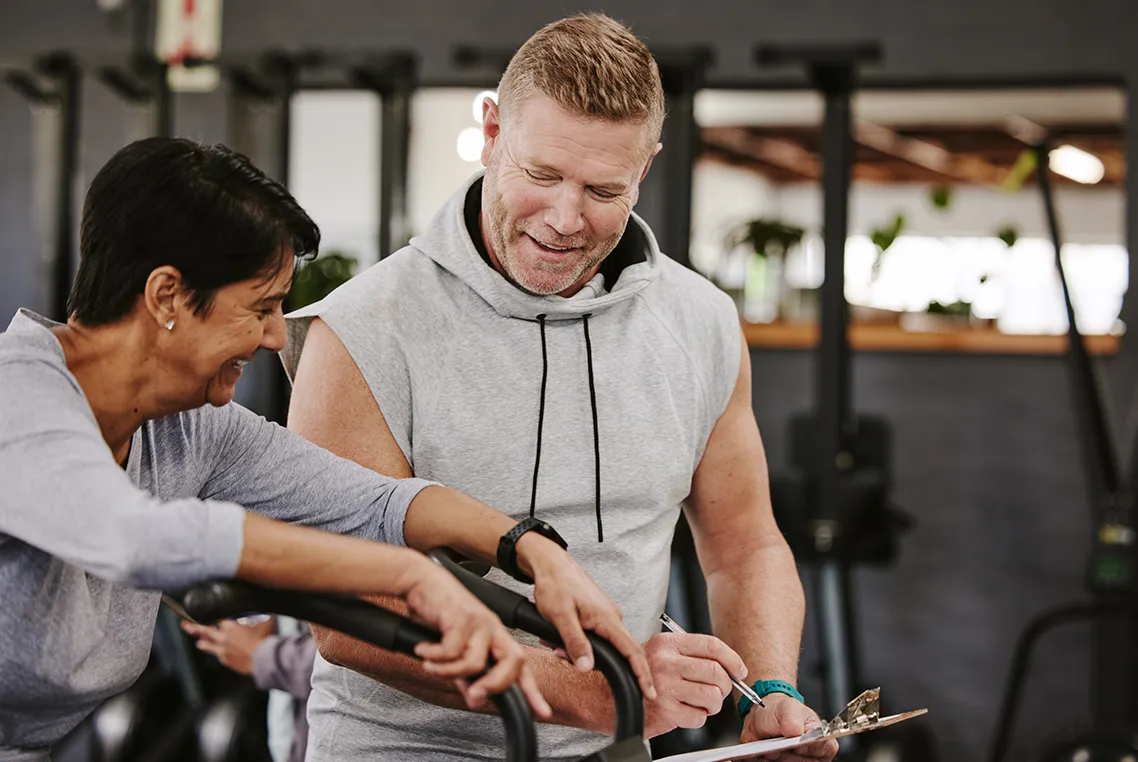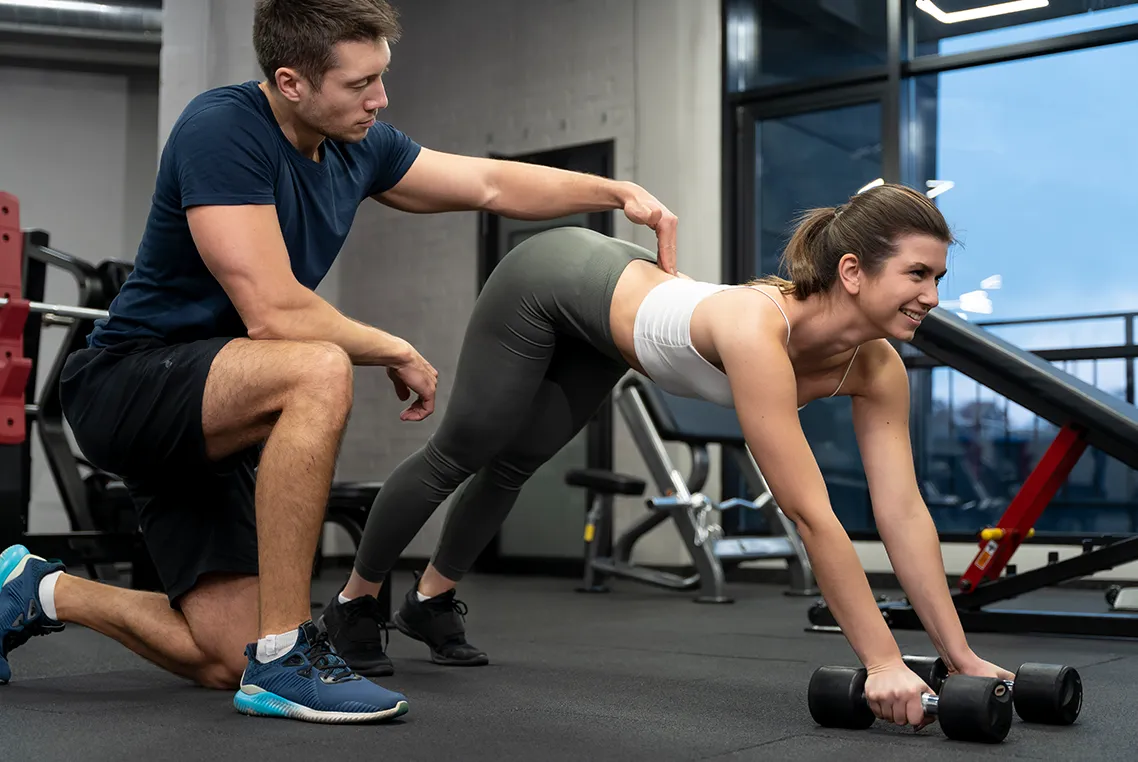
In Dublin, becoming a certified fitness trainer has been a popular career choice for many, and rightfully so. It’s a profession that not only allows you to share your passion for fitness and health with others, but also has substantial benefits – from flexibility in hours, different working environments, and the satisfying feeling of helping others reach their fitness goals.
If you are thinking of entering this rewarding field, understanding what to expect from your fitness trainer certification journey is a crucial first step. In this blog, you’ll learn about the essential steps for becoming a successful fitness instructor in Ireland and how to choose the right certification. We’ll also provide tips on how to successfully complete the course and get a job.
In Ireland, the term ‘fitness instructor’ can often be used interchangeably with the term ‘personal trainer.’ However, these two roles can have some slight variations. A fitness instructor typically guides group classes in fitness centres, while a personal trainer primarily provides one-on-one coaching.
Additionally, to work as a personal trainer in Dublin or elsewhere in Ireland, you need a Level 4 qualification. On the other hand, to work as a fitness instructor, you only need a Level 2 or Level 3 certification.
Regardless of the title used, the impact of these professionals on their clients’ fitness journeys is immense. A well-trained fitness instructor or trainer can greatly improve their clients’ workout efficiency, enhance their fitness knowledge, provide motivation, enable safe workout practices, and ultimately, help them reach their fitness goals. Thus, obtaining the proper qualifications for becoming a fitness professional is crucial.
If you’re looking to become a certified fitness trainer in Dublin, the process involves getting a recognised qualification. Several institutions in Dublin, like the National Training Centre (NTC), offer fitness training certifications.
The certification process involves comprehensive training covering both theoretical and practical aspects of fitness training. The examination structure is normally split into two parts; theory, which is often a multiple-choice test, and practical. Upon successful completion of these exams, you will be evaluated and granted your fitness trainer certification.
When it comes to certifications, ensure they’re of a high standard. Reputable certification programmes will be recognised by the Register of Exercise Professionals (REPs) Ireland.
Some prerequisites might include a First Aid qualification or previous experience in the fitness industry. Certain courses require you to have a certain number of Leaving Certificate points or an equivalent qualification. But there are also courses like NTC’s Fitness and Personal Training course, that are open to all individuals with or without existing qualifications or experience.
C. Selecting the Right Certification Programme
When choosing a fitness instructor certification program, consider factors such as program content, duration, practical training opportunities, and the reputation of the certification provider.
Look for a programme with a comprehensive curriculum that blends both theoretical concepts and practical skills, like the NTC’s Fitness Instructor Programme.
An ideal programme will include key subjects like anatomy, physiology, exercise programming, and client interaction, along with providing opportunities for hands-on experience.
While the total cost varies based on the chosen programme, additional expenses can include exams fees, textbooks, uniforms, and possible Continued Professional Development (CPD) courses.
Balance is key, both in terms of theoretical learning and acquiring practical skills. Focus equally on preparation through books, reliable study guides, digital learning tools, participating in study groups or workshops, and, most importantly, staying motivated and focused.
The format and structure of the certification exam will vary by provider. It is essential to familiarise yourself with the types of questions, exam duration and the passing criteria beforehand.
Practical experience is invaluable in building your confidence as an instructor. Look for internship opportunities in fitness centers, gyms, or community centers in Dublin. Networking in this industry can also be highly beneficial.
Upon certification, celebrate your achievement and begin working on your career in fitness. Craft a professional resume, market your certification and consider continuing your education to remain relevant.
Becoming a certified fitness trainer in Dublin is a fulfilling career path for fitness enthusiasts. Remember, the journey requires dedication, perseverance, and passion. Each step you take towards certification brings you one step closer to transforming others’ lives through fitness. So, embrace the journey and remember that every small step is progress!
Ready to turn your passion for fitness into a thriving career? Start your journey with NTC’s accredited Fitness Instructor Certification course in Dublin. Learn from the best and build your expertise today – call us on 01 882 7777 or email us at info@ntc.ie to register!


ONSITE LESSONS
Practical classes take place either at NTC or SPORTSCO, Ringsend, Dublin 4
Saturday from 10:30am to 1pm and 2pm to 4:30pm
July 2025 – 26th♦
August 2025 – 9th, 16th, 23rd, 30th
September 2025 – 6th, 13th, 20th, 27th
October 2025 – 4th, 11th, 18th♦, 25th
November 2025 – 1st, 8th♦, 15th, 22nd, 29th, 30th
December 2025 – 6th & 7th
Examinations and/or class will start at 9:30am on dates indicated with ♦
ONLINE LESSONS
Tuesday and Thursday Evenings from 7pm to 9pm
(Recordings available afterwards)
July 2025 – 29th, 31st
August 2025 – 5th, 7th, 12th, 14th, 19th, 21st, 26th, 28th
September 2025 – 2nd, 4th, 9th, 11th, 16th, 18th, 23rd, 25th, 30th
October 2025 – 2nd, 7th, 9th, 14th, 16th, 21st, 23rd
OPTIONAL FREE COURSE
National Qualification in Kettlebell Training
November 2nd, 2025 – Sunday from 10:00-17:00